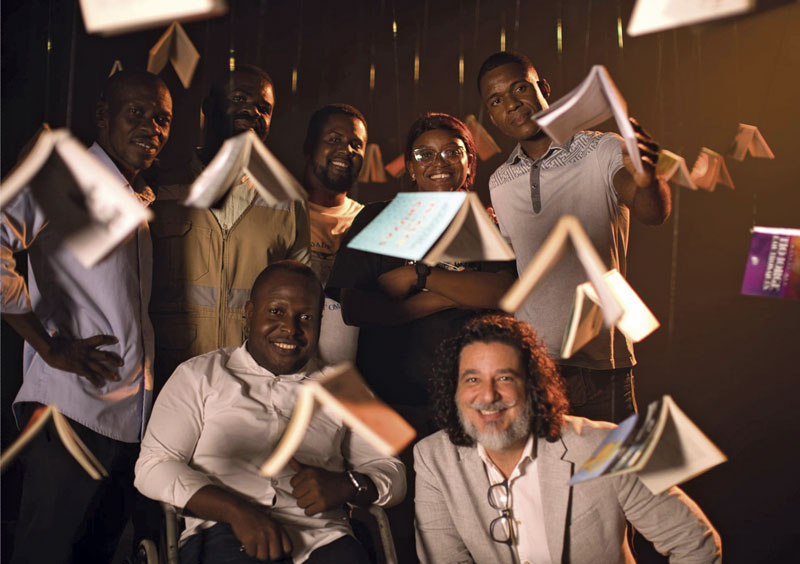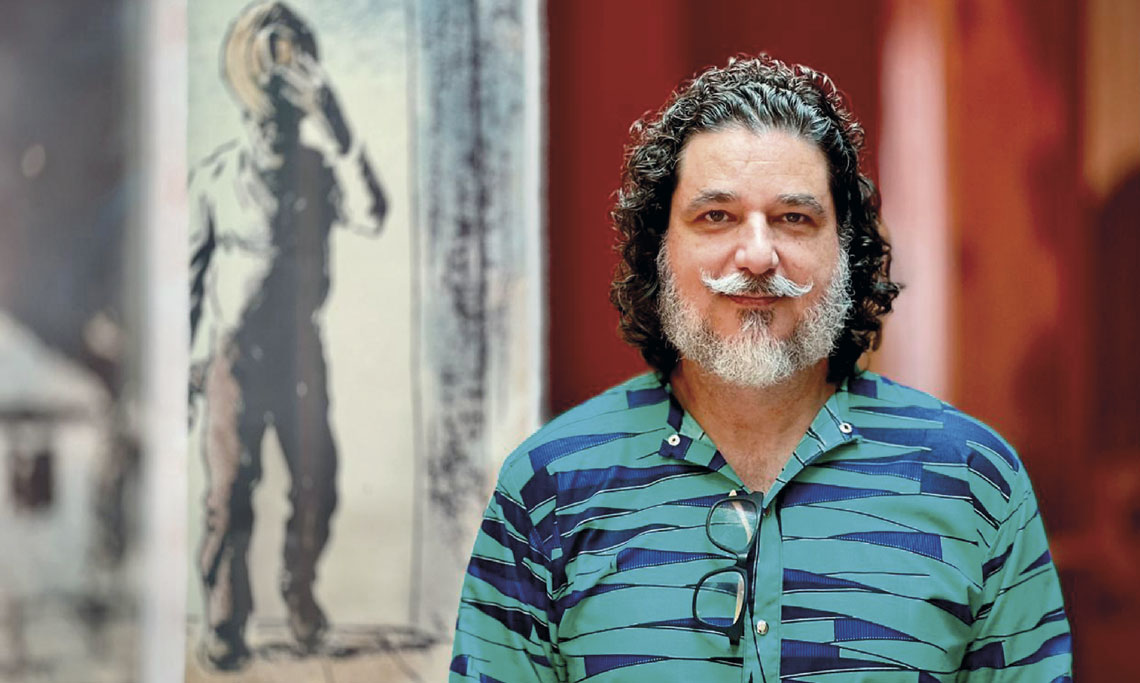I was born in Belo Horizonte in 1976 and I studied literature at UFMG [the Federal University of Minas Gerais] from undergraduate to postgraduate level. In 2020, I finished a postdoctoral fellowship in which I focused on the work of the Brazilian poet Affonso Ávila [1928–2012], who among other things, researched the Brazilian Baroque. That same year, I signed up for the Leitorado Guimarães Rosa Program, run by the Portuguese Language Division of Brazil’s Ministry of Foreign Affairs, which aims to promote Brazilian literature at foreign higher education institutions.
Places on the program are highly competitive and the participants are selected by CAPES [the Brazilian Federal Agency for Support and Evaluation of Graduate Education]. In 2023, the program celebrated its 70th year. In the past, any degree was accepted, but since 2018, candidates must have a degree in Portuguese. A master’s degree in literature or linguistics became another prerequisite in 2022.
We currently have around 40 participants in countries such as the USA, England, Bolivia, Mozambique, and China. Program applicants must propose a project. Mine was to teach a Brazilian literature course for undergraduate and master’s students at Agostinho Neto University in Luanda, the capital of Angola. In the course, I review the Brazilian literary canon and present a selection of contemporary authors from our country with ties to Africa, such as Conceição Evaristo and Ricardo Aleixo.
Moving from Brazil to Angola wasn’t easy. It was my first time leaving Brazil for work. And to make it harder, I came to Luanda alone. My wife, journalist Graziela Cruz, stayed in Minas Gerais with my stepson, Thiago. Since then, we have only seen each other every six months. Every day I walk from my house to the beach, and think about Bahia on the other side of the ocean.
When you walk around Luanda, you can see the traces of colonization in a country that only gained independence from Portugal in the 1970s. The level of urban violence is similar to ours, but the misery is more apparent. Floods are common. The musseques — the Kimbundu word for slums — lack basic sanitation, and when it rains, residents are left stranded. The landscape is marked by inequality. In the city center, in the midst the colonial buildings, some preserved and others in ruins, stand super-modern skyscrapers.

William RibodiasWith the Angolan team of the Palavra de poeta YouTube channel, which he created eight years agoWilliam Ribodias
I think it would be unfair to compare the academic environments in Brazil and Angola. In addition to its long colonial history, Angola spent the last six decades in conflict: first there was the war of independence from Portugal that lasted from 1961 to 1974, and then there was a civil war between 1975 and 2002, albeit with interludes. The country is rich in natural resources, including oil, diamonds, and other minerals, but it continues to be exploited by great national powers, still faces political and economic turmoil, and has one of the worst HDI [Human Development Index] scores in the world. As a result, academia here is precarious in several ways: there is a shortage of researchers, a lack of funding, and low salaries for professors.
The university I work at is public and is the largest in the country. In Angola, public higher education institutions are funded by the General State Budget and other sources, such as tuition fees paid by students of evening and postgraduate courses. The National Institute for Scholarship Management was created to fund master’s and PhD students in Angola and abroad.
I work at the School of Humanities, which in addition to the literature course, offers degrees in executive secretarial studies and philosophy. The infrastructure is improvised in very hot buildings with no air conditioning. Despite these difficulties, I really enjoy being a professor in Angola. The students are generally keen to participate and I even had to change the way I teach; I started to allow more time for interaction, for conversation in the classroom. The literature department does not yet offer a doctorate course, but we are working hard to have one created soon. Greater impetus is provided by the presence of foreign teachers at Agostinho Neto.
At the same time, I perceive a great intellectual power in this country, a local force, at least in my field of knowledge. I see that Angolan thinkers are questioning many things. For example, during the colonial period that ended in the 1970s, teaching native languages was prohibited. This year, Luís Kandjimbo, one of the country’s most renowned literary critics and a professor at Agostinho Neto, released his book A disciplinarização da literatura angolana: História, cânones, discursos legitimadores e estatuto disciplinar (The disciplinization of Angolan literature: History, canon, legitimizing discourse, and disciplinary status) [Mayamba Editora], in which he reflects on this absurdity and the consequences still felt in Angolan society. There is an ongoing debate about the autonomy of Angolan thought, which includes literature.
Brazilian culture and politics are common knowledge among Angolans. But literature students generally only know the most renowned writers, such as Machado de Assis [1839–1908], Clarice Lispector [1920–1977], and Guimarães Rosa [1908–1967]. The reverse is also true in Brazil: we know of very few Angolan authors, mostly José Eduardo Agualusa, Ondjaki, and Pepetela. To help spread awareness of Angolan literature among Brazilians and vice versa, I was one of the creators of Puxa palavra, a virtual project run in 2021 by the Guimarães Rosa Institute, a Brazilian government agency based in Luanda. Every month I lead a conversation between writers from both countries. I also continue to upload content to Palavra de poeta, a YouTube channel that I created eight years ago to share my passion for reading poetry. The channel was taken over by the Guimarães Rosa Institute and nowadays I primarily use it to share my readings of poems from Angola and Portugal.
Having renewed my stay under the Leitorado Guimarães Rosa Program for a further two years, I will return to Brazil in October after a four-year absence. Based on my time experiencing Angolan culture, I am writing a novel and a book of poems. I hope that they will be finished by the time I come back to Belo Horizonte. I will arrive there as a person who has realized that Brazil is very African, but does not want to admit it.
Republish